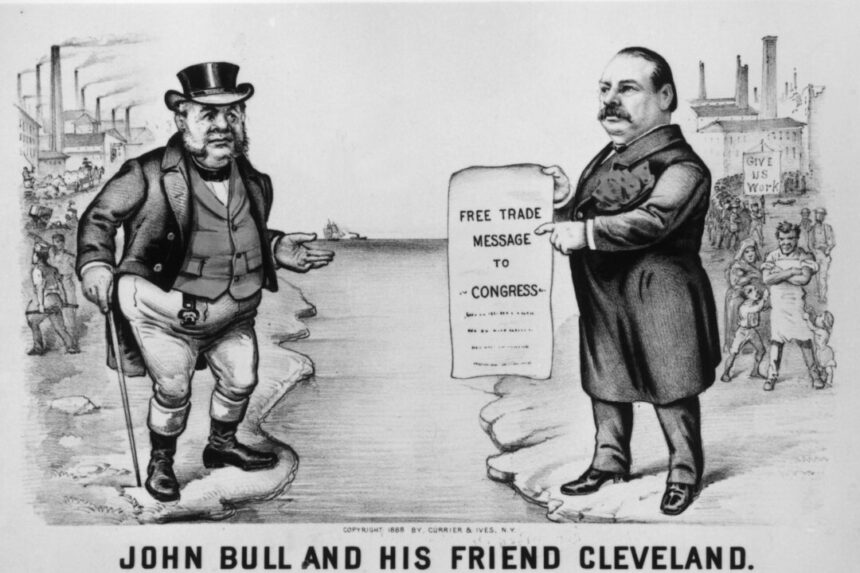Commentary
Some wild shifts are taking place in our time.
The low-tariff global trade order is falling apart.
Nationalist movements are gaining strength in every Western nation, not just the United States.
The major media is under serious financial strain to the point that the owner of the Washington Post has penned an editorial decrying the tendency to speak only to elites.
A presidential candidate is talking about scrapping the income tax.
The Supreme Court earlier this year ruled that 40 years of regulatory jurisprudence is essentially contrary to the Constitution.
The list goes on and on with the rise of homeschooling, the reliance on alternative media, the dramatic shift in partisan affiliations over healthy food, the unpredictable alliances over the U.S. role in the world, and so much more.
People are asking fundamental questions about issues that only a few years ago seemed fully settled. What was stable is unstable and what was believed by nearly everyone is now widely doubted.
It’s enough to make one’s head spin. What is happening and why is it happening?
The short answer is that we are living through a class paradigm shift. One is going away and another is coming. We are in pre-paradigmatic times, which are surely the most exciting times to be alive.
More than that, it implicitly shook how people came to understand how progress takes place. He said it is not a linear process with every generation absorbing the best from the last but rather that progress is episodic, a shift from success to failure and back again, through titanic movements of large paradigms.
Kuhn arrived at this conclusion by looking at the long history of science and noticing the tendency toward complacency around an orthodoxy of some sort. This is the period he calls “normal science.” The practitioners have all been schooled in a certain way, deferring to teachers and dominant institutions that have captured government and the public mind. It’s a way of understanding the world and within that the main practitioners focus on problem-solving and applications.
This period of normal science can last a month or decades or centuries, rarely questioned. And then something happens. Kuhn writes that this orthodoxy comes to be challenged by certain features of reality that are not explained by normal science. Once these are more closely investigated, the anomalies start to pile up and then overwhelm the explanatory power of the settled paradigm. The longer this goes on, the more the paradigm comes under strain, as a new generation seizes on the failures and highlights the incapacity of the orthodoxy to account for the reality all around us.
That’s when the settled science breaks down. It can happen slowly or quickly, and sometimes paradigms overlap both in their popularity and their collapse. That collapse does not mean that every mind is changed. Kuhn observes that the practitioners of the old science continue on their merry way through retirement and final expiration, while the younger people work on cobbling together a new way of thinking that gradually emerges as the dominant paradigm.
Kuhn was writing about science and the profession thereof but his insight has broad application to sociological, cultural, and political ideas too. They do not evolve in a linear fashion, piling victory upon victory, as a Whiggish perspective of the 19th century would have it. Instead, change occurs episodically. One generation is as likely to forget the wisdom of the past as it is to overthrow the orthodoxies of the present. We are in a forever state of cobbling together truth rather than progressively unfolding it.
We’ve seen this happen in the postwar world, as planners built structures that were supposed to govern the world forever. But in a few short years, the world came to be divided rather than united by the Western perception of the new threat of Russian imperialism. That created the Cold War which lasted for 40 years until a new “end of history” was born, which put freedom, democracy, and U.S. hegemony on the commanding heights. That turn has been challenged by the rise of China and huge industrial shifts in the 21st century.

A worker is pictured with car batteries at a factory of Xinwangda Electric Vehicle Battery Co. Ltd., which makes lithium batteries for electric cars and other uses, in Nanjing in China’s eastern Jiangsu Province, on March 12, 2021. STR/AFP via Getty Images
If we were to name one dominant factor that has provoked the big change in our time, it would have to be the global response to the lab-created virus of SARS-CoV-2, which was met with Chinese Communist Party-style universal quarantines all over the world, and followed by shot mandates on most public institutions and many private businesses. These policies were extreme beyond which had been practiced in any period of history but also, and in many ways, merely an extension of the “normal science” of times.
The media, large corporations, and nearly all governments got behind the pandemic response and jeered the non-compliers. This was a huge error because it gave rise to a full generation of the incredulous who lost trust in elites at all levels: medical, academic, media, and government.
In our current era, everything seems to be falling apart, leading people to search for explanations for what went wrong and how to fix it. What intrigues me about this election year is not just the issues being discussed, but the underlying theme of the complete discrediting of elite opinions over the past four years. Expert claims became unbelievable, particularly when public health measures such as school and church closures, ventilator use, and vaccine mandates were enforced. These measures, which many did not agree with, turned out to be less effective and more harmful than expected, leading to a loss of trust in the expert classes.
This loss of trust is not surprising to those familiar with Thomas Kuhn’s work on paradigm shifts. As we navigate through this time of uncertainty, everything seems up for debate. Recently, Elon Musk proposed a significant budget cut that went largely unnoticed, highlighting the changing landscape we find ourselves in.
The transition to a new way of thinking will not happen overnight and may come with challenges, but it is inevitable. As Jeff Bezos noted, reality always prevails. The world is evolving, and we must adapt to these changes.
The views expressed in this article are the author’s own and may not align with those of The Epoch Times.
Source link







